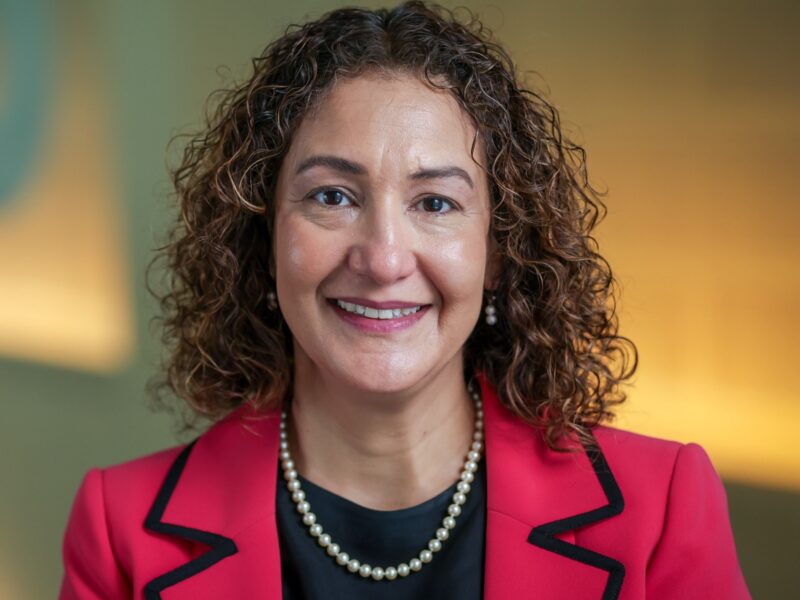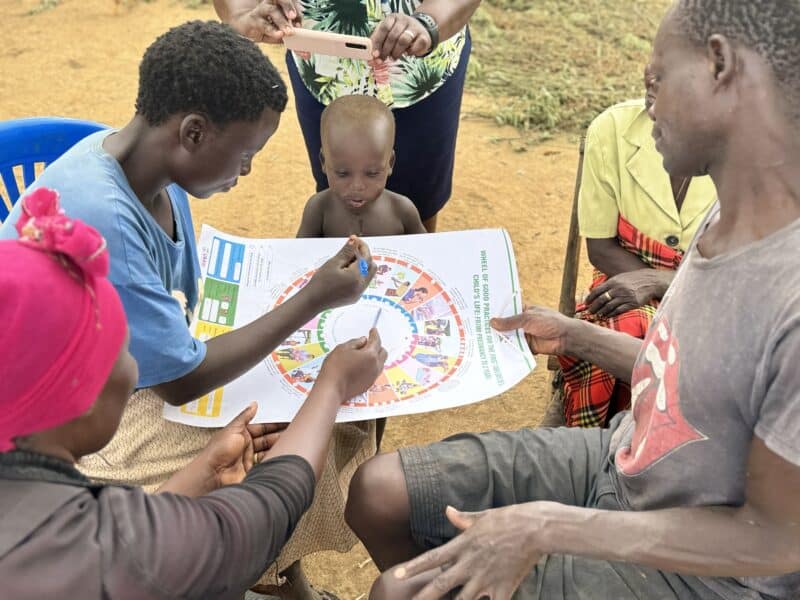Growing up in Nigeria, Chizoba Onyechi always knew she wanted to work with people, helping them to improve their health and their lives. She began her career in public health supporting HIV/AIDS outreach, but her time working with these communities soon made her aware of another pressing health issue that needed her skills and passion.
Onyechi saw many young pregnant women – girls, really – who were forced into illegal abortions after unintended pregnancies, made to risk their lives because they didn’t even know contraception was an option. She saw that many women were “relying on fate and faith to get rest from the burden of bearing children in close succession” when modern – and safer – options existed at nearby clinics. And she was constantly being asked for advice about family planning.
“There was a huge knowledge gap among these young women,” Onyechi says. “They were stranded in many ways. They didn’t want to become pregnant but they didn’t know how to prevent pregnancy. Often, they were being misled. I feel that if people are well informed then half of our problems are solved.”
Now, Onyechi, 36, spends her days making sure women have current and accurate information about family planning as a communications advisor in Abuja, Nigeria with the Johns Hopkins Center for Communication Programs’ Health Communication Capacity Collaborative (HC3). For this and her previous work informing women of their family planning options, today she was named one of 120 Under 40: The New Generation of Family Planning Leaders.
The 120 Under 40 project recognizes and highlights the achievements of young family planning leaders worldwide. This year’s 40 winners are advocates, researchers, service providers, epidemiologists, medical doctors, program officers, communications/media professionals, and founders of NGOs and nonprofits. They work all over the world—in clinics and universities, in offices, and in the field—to advance family planning and reproductive health. Organized by the Bill & Melinda Gates Institute for Population and Reproductive Health at the Johns Hopkins Bloomberg School of Public Health, 120 Under 40 is sponsored by Bayer.
Onyechi excels at community-level advocacy and facilitating community dialogues. She works with people of all ages to help them better understand reproductive health and trains community health workers to give the best information to their clients. Onyechi knows it’s not enough to have reproductive health services available in a community. People need to fully understand the benefits of those services before they will seek them out.
It’s also not enough to talk only to women and health workers, she says. Encouraging more couples to use modern contraceptive methods also involves working with men in the community and with traditional and religious leaders. In many communities, contraception has long been taboo and only in recent years has it become more accepted to openly discuss and encourage family planning. Spacing and limiting births can improve the health of mothers and babies – and entire communities.
Through her work with community members, leaders and health workers, Onyechi is making a measurable difference. Previous research has shown that Onyechi’s work helped increase the use of long-acting reversible contraception such as IUDs and increased the number of men who accompanied their spouses to clinic appointments where contraception was discussed, enabling them to make family planning choices as an informed couple. It’s these results that give her the motivation to continue her work even in hard to reach areas of Nigeria.
It’s not just numbers that keep her inspired. She proudly says that one of the biggest endorsements of the work of HC3 happened recently, at a high-level national family planning meeting. At the meeting, Alhaji Yakubu Abdullahi spoke about how HC3 helped religious leaders like him become advocates of childbirth spacing in Bauchi state. “It shows that we are making a difference,” she says.





